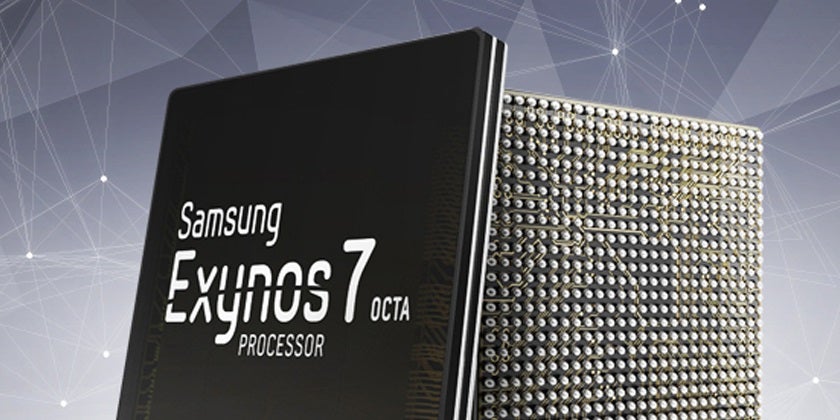Some eight months after the Galaxy S6 launched, it looks like Samsung's next flagship smartphone is already coming together and the possibility of a early January 2016 release appears increasingly realistic! Following
a fairly convincing streak of leaks, industry sources claim that, come December, Samsung will be ready to put its new Exynos 8890 mobile SoC in mass production. This is the chipset expected to power some variants of the upcoming smartphone, while others will run on
the Snapdragon 820 SoC, designed by Qualcomm and also manufactured by Samsung.
Notably, the Exynos 8890 will be the first Samsung SoC to employ custom CPU cores,
code-named "M1". Although Samsung was accustomed to licensing standard ARM designs for its Exynos chipsets, it had
custom core designs in parallel development for some time. That's the thing to do if you are a high-profile silicon slinger and want to make the most of the available semiconductor technology. Apple and Qualcomm built quite a reputation in the business, for their custom core designs (which basically optimize the heck out of ARM's work) facilitated fast and efficient processors, such as the Apple A9 in the iPhone 6s, or the Snapdragon 801 and 805 chipsets from 2014 that hold up remarkably well. Being an ambitious chipmaker, it makes sense for Samsung to pursue the same path.
Right now, the company is busy testing and finalizing the Exynos 8890, while simultaneously working to bring the best out of the Qualcomm Snapdragon 820 in time for the Galaxy S7's release. Unlike this year, which saw Samsung abandon Qualcomm chips for its own Exynos SoCs, Samsung will have a genuine business interest in shipping as many Snapdragon 820-powered Galaxy flagships as possible over the next year, for
Qualcomm has become a large manufacturing client of its. Thus, Samsung is said to be hard at work optimizing the chipset for its upcoming smartphone.
However, industry murmurs claim that Samsung is battling the same
overheating issues that plague the Snapdragon 810 SoC, but we have no way of verifying this information. One report says that Samsung is working on a software workaround and considering a "radiating pipe" cooling solution that would help draw the heat out of the chip. Either way, Samsung will be using its 14nm FinFET process in manufacturing the chipset, which is also said to offer 40% faster graphics performance and 40% less battery consumption than the Snapdragon 810 chip, which was built by TSMC on a 20nm process.
At the same time, Samsung also needs to turn the Exynos 8890 into a solid, stable product if it hopes to compete with it in the Chinese market, where low-cost solutions from MediaTek, Huawei, and Spreadtrum reign supreme. The chipset contains an octa-core CPU with a maximum clock speed of 2.4GHz, and
posted stellar preliminary benchmark results.
source:
Business Korea


Things that are NOT allowed: